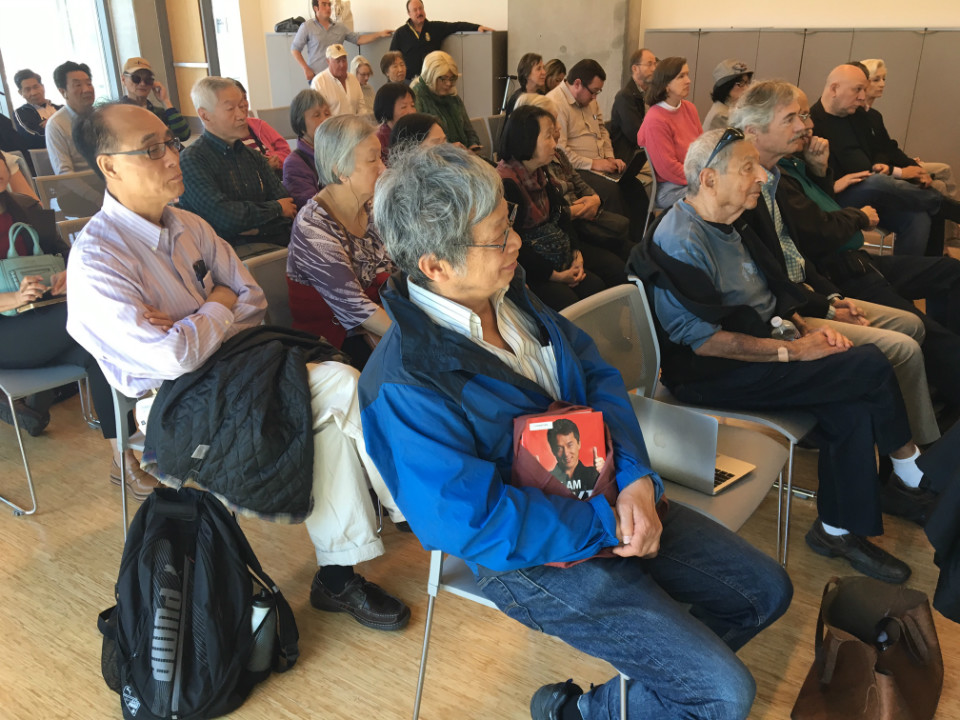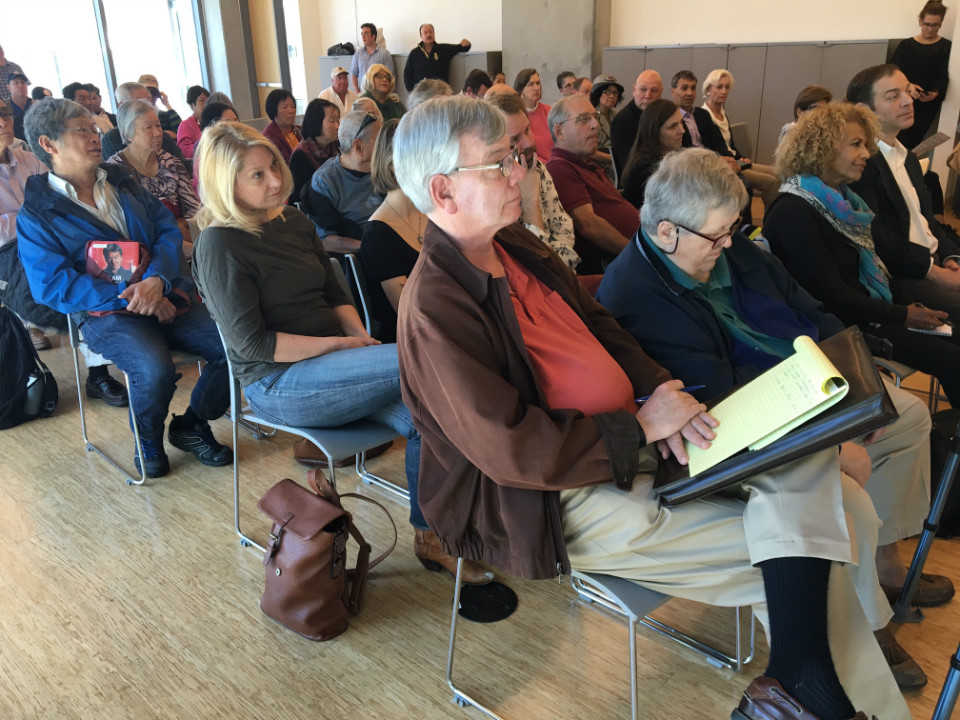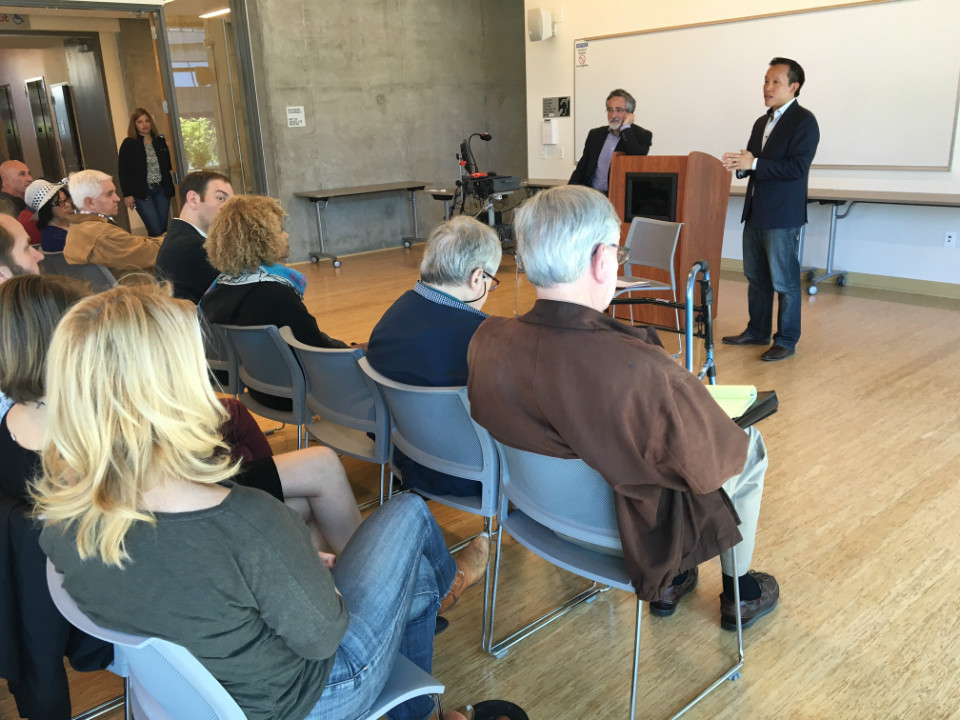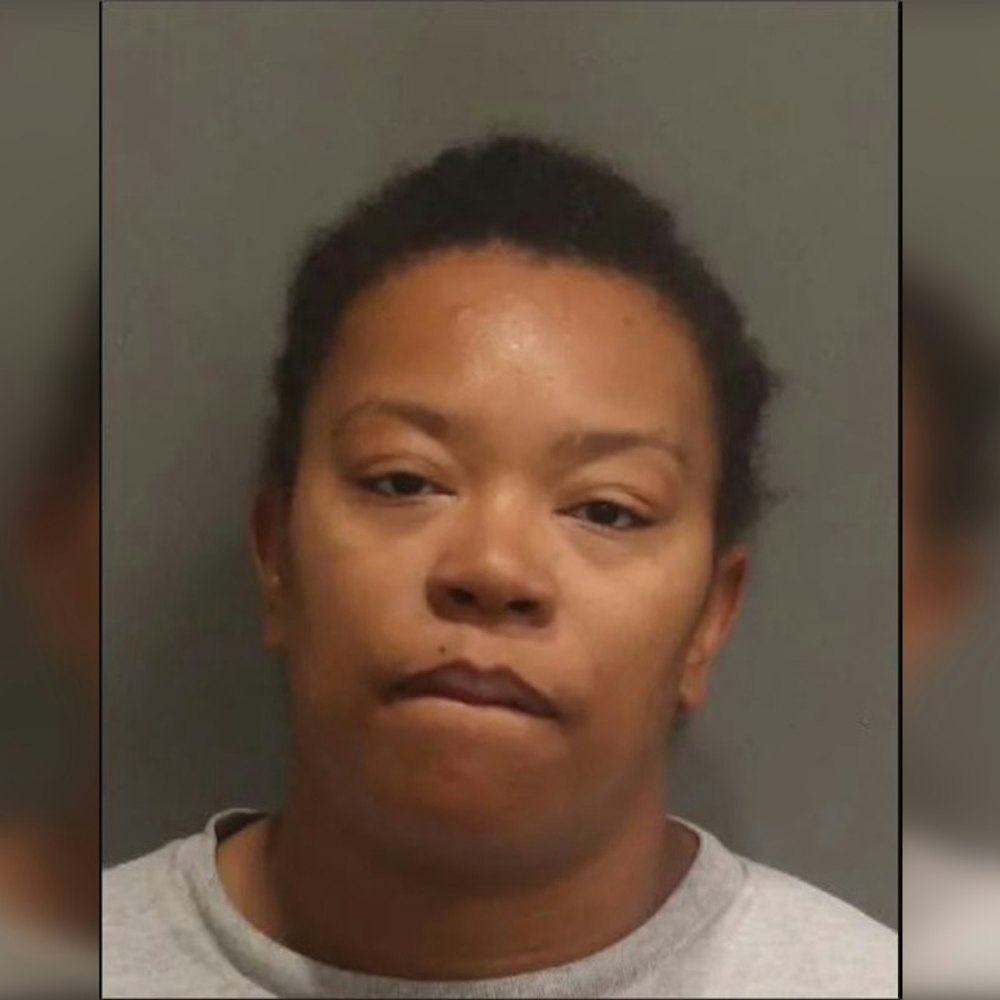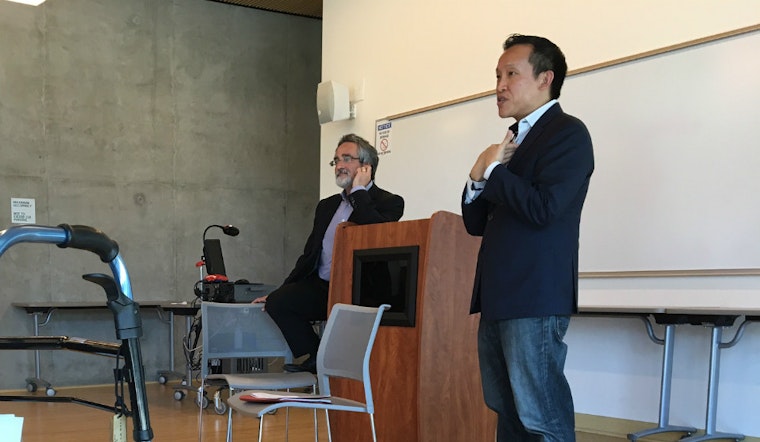
Affordable housing, public safety and short-term rental abuse were top concerns for North Beach and Chinatown residents, who filled nearly every seat of a town hall meeting held by California State Assembly member David Chiu and District 3 Supervisor Aaron Peskin on Saturday morning, April 30th.
While Chiu, the former District 3 Supervisor, noted that he's spending less time on the ground in the city’s northeastern neighborhoods, he said he still has residents’ interests in mind at the State Assembly. Chiu used the meeting to offer a Sacramento progress report, discussing his work on issues that affect North Beach and Chinatown. Here are a few highlights:
Short-term rental reform
While he was still a Supervisor, Chiu introduced legislation to legalize Airbnb, with restrictions and regulations. The 2014 law limits short-term rentals to 90 days per year, effectively preventing renters and owners from operating a year-round hotel service. Before then, said Chiu, the city was “the Wild West for short term rentals.” Things have since improved a bit, but “there’s still a lot of confusion."
According to Chiu, one persistent challenge has been enforcing the restrictions. “There is an ongoing discussion about appropriate enforcement," he said. (You can read more about that here.)
“I have no problem if you want to rent out your place for the weekend, or if a family wants to rent out their home while they’re on vacation," Peskin said. But many units are not used for those purposes—they are full-time rentals. He cited a report that found nearly 2,000 residential units in San Francisco have been taken off the market, to be used entirely as short-term rentals.
Affordable housing
A number of attendees voiced their concerns over a lack of housing for low- and middle-income residents. In response, Chiu said he has introduced roughly a half-dozen measures to the State Assembly regarding the issue, which have seen mixed success.
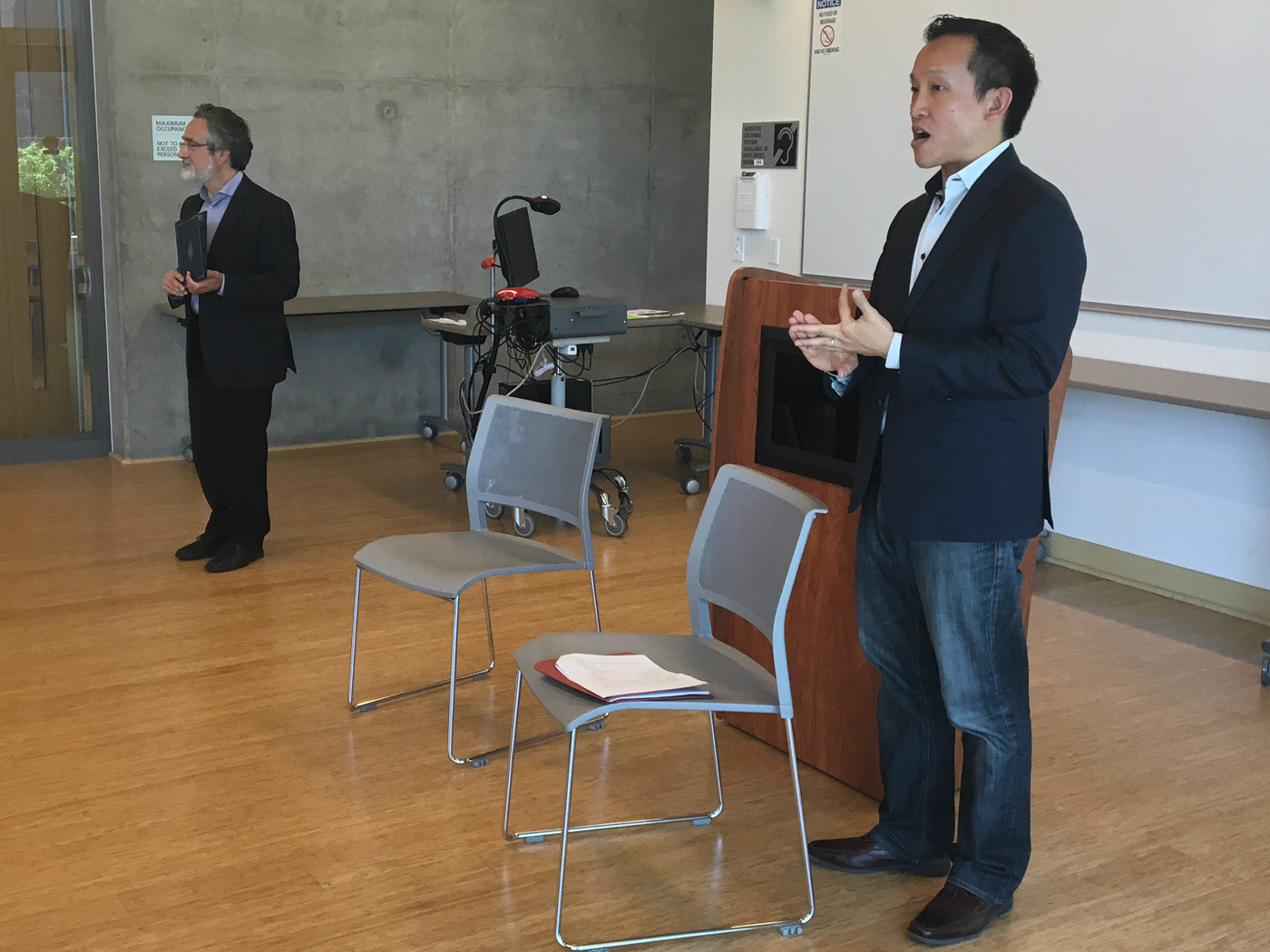
Both Chiu and Peskin cited Proposition C, which will be on the city ballot this June, as a possible antidote. According to Peskin, the measure would produce more low- and middle-income housing by raising the required percentage of inclusionary housing, the affordable units that developers are legally required to build, from 12 to 25 percent. 10 percent of that would be middle-income housing.
Peskin also discussed his recent request to the City Attorney to place a moratorium on evictions from Single Room Occupancy (SRO) units and on conversions of the units, which, according to Peskin, have diminished in the city in recent years.
When asked about Ellis Act reform, Chiu said he would be the first to support such a measure. However, it would require a two-thirds vote from the State Assembly, which has thus far trampled every attempt at reform.
Commercial evictions
Rents for small businesses were also a subject of concern. One attendee emphasized the city’s responsibility to preserve affordable commercial spaces, as more and more small businesses must raise their prices or vacate when their rents increase.
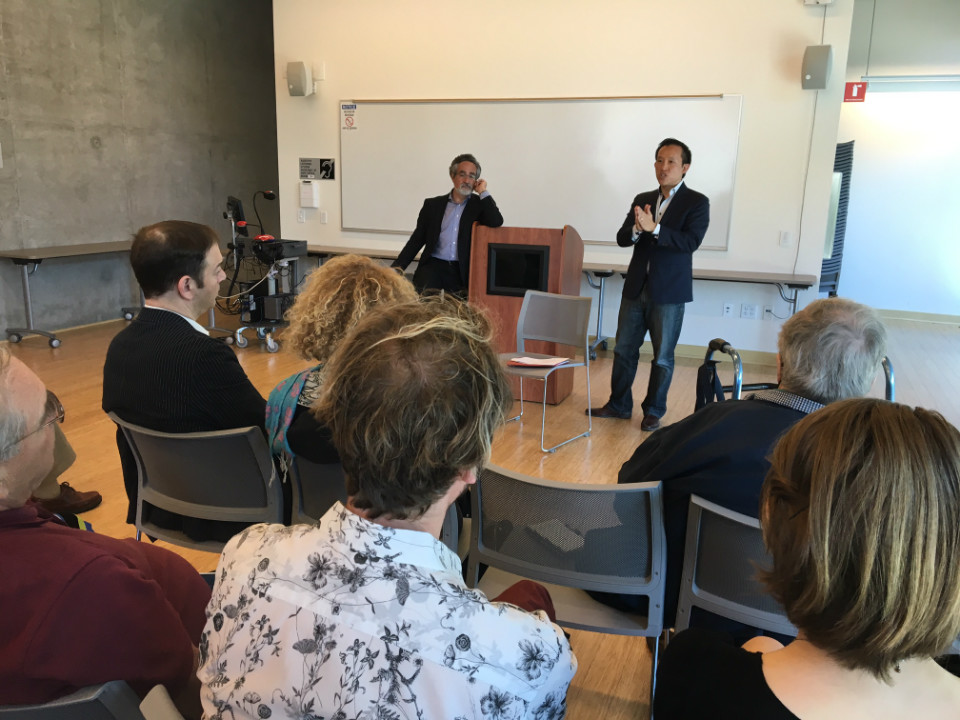
There is no commercial rent control in California, and according to Chiu, most public officials at the state level would not support the measure. “Like Ellis Act reform, commercial rent control has a long way to go,” said Chiu.
“One way to deal with the issue is last year’s Legacy Business legislation,” said Peskin. “But, as highlighted by Hoodline, that has been rolling out at a glacial pace.”Peskin will host a rally for Proposition C on May 7 at 11am at the Women's Building (3543 18th St.) in the Mission.
